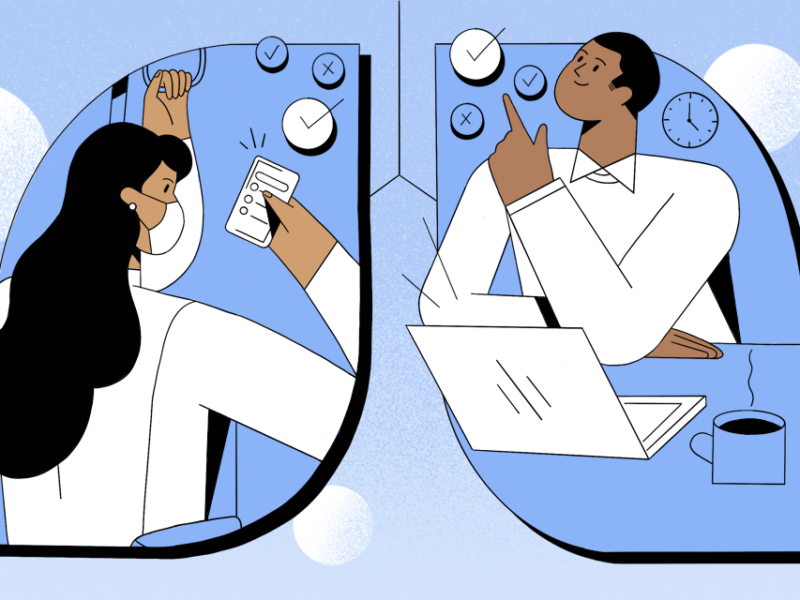In Vermont, the current debate over whether to get rid of “philosophical exemptions” to childhood vaccines mirrors rising skepticism about vaccine-use across the country. The philosophical exemption allows families and guardians to enroll their children in public school or childcare without state ordered vaccines. In addition to the 11 CDC-mandated infant vaccines, the state legally requires several more. Including boosters and state health department suggestions, the toddlers honing their skills at the kindergarten crafts table must receive up to twenty shots before they are allowed in the doors. For some mothers and fathers in Vermont, it seems unnecessary. Many now chose the philosophical exemption, which allows them to circumvent the state law.
The state government is undecided as well. In March, the Vermont senate voted to get rid of philosophical exemptions, but only a month later, the house voted to keep them. If Vermont passes regulation that eliminates the philosophical exemption, many people will need to get their kids vaccinated before they can return to school. The CDC expresses concern for the decline in Vermont’s vaccine coverage, which fell from 93% to 83% between 2005 and 2010. Epidemiologists cite the lack of protection as a possible reason for the whooping cough outbreaks in the state, a disease for which the CDC mandates vaccination. Still, many Vermonters consider the mandated medicines to be too much.
They aren’t the only ones. The CDC reported in 2011 that vaccine coverage is dropping in other states. Unlike common public health issues that decry financial burden and unequal access to care, the vaccine drop-off, primarily through philosophical exemptions, is occurring in wealthier states like Washington, Oregon, and Vermont. Vermont, specifically, has one of the highest exemption rates in America. For each mother and father, it may seem illogical to vaccinate a child for, say, polio. Why risk suffering to protect from a disease that, though the iconic bow-legs and leg braces were once familiar sights, is now a rare occurrence in the United States. While it was a common thought for their grandparents, kids getting a polio vaccine today may never even meet someone with polio. You could argue that the vaccine is working, but why risk personal injury for a threat that doesn’t seem to exist?
Background on the Backlash
So why are some Americans, with their undeniable focus on technologically based medicine, turning their backs on vaccines, one of mankind’s greatest scientific successes? A recent Associated Press article about the debate in Vermont stated, “Vaccine skeptics are active in alternative health and natural food movements and are critical of what they see as a profit-driven pharmaceutical industry.” Their concerns, no matter their view on homeopathy, are understandable in the context of parenthood. Vaccines, whether live attenuated or dead, are meant to rile up our immune system. We are purposefully injecting ourselves with an impotent virus, its shell, or a protein part, to spur our bodies to create antibodies as if it were an actual viral attack. Immunologically, we are running a fire drill. Even though vaccines generally contain an immune-booster, or adjuvant, the heightened state of alarm in the system can lead to fever, seizures, and rashes. On the other hand, those children will most likely (the odds against it are analogous to winning the lottery) never acquire the vaccinated disease. Therefore there are direct benefits, but there exist indirect benefits for the community as well.
The Virulence and Enforcement of Altruism
A professor of Infectious Disease Epidemiology at Boston University once told me that getting a vaccine is an act of altruism. It was an interesting statement. Darwin considered altruism the Achilles’ heel of his theory on natural selection. After all, if it is survival of the fittest, why help another survive? But humans and other species act altruistically all the time. The idea the professor had in mind was herd immunity. In the most basic sense, herd immunity is a scenario in which enough people are vaccinated or protected from a virus that it cannot spread through the population: epidemics become impossible. Vaccination is altruistic, however, because there will always be people among us who cannot receive vaccines because they are immunologically compromised, otherwise ill, or medically ineligible. These people are called medical exemptions and they are less examined compared to philosophical exemptions. Every time someone is vaccinated, he helps protect the people who cannot do the same.
What my professor did not mention, though, is that sometimes altruism can be forced. State governments enjoy the constitutional jurisdiction of state police power. Specifically, this enumerated power revolves around morals, welfare, security, and public health; vaccination, without a doubt, is a matter of public health. In fact, the court decided as much in the 1905 case Jacobson v. Massachusetts. In this case, the minister Henning Jacobson sued Massachusetts for infringing on his individual liberty to decide for himself whether or not to be vaccinated against smallpox. The Supreme Court ruled in favor of the state claiming vaccination to be a legitimate extension of state police power.
Thoughts from Vermont
The debate in Vermont threatens to draw a deep line in the sand: vaccination or education. If the philosophical exemption is eliminated then many parents will have to vaccinate their children to get them back to school. In Vermont, and many other states, there is a confluence of arguments between state power, individual liberties, technological medical solutions, and public health. The outcome will underline, at some level, the thought process for many Americans about whether vaccination is a risk they will take to benefit the health of those around them. As one house speaker told the press, the Vermont state motto sums up the conflicting American mores: Freedom and Unity.
